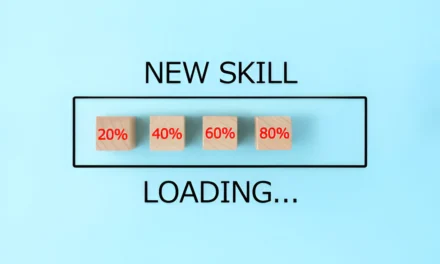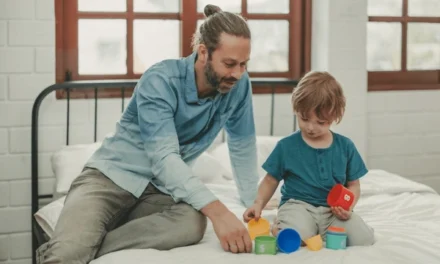Did you know that kids who play pretend do better in writing, spelling, and vocabulary1? This shows how pretend play boosts a child’s brain and school skills. It’s more than just fun; it’s key for learning and growing.
Pretend play boosts creativity and problem-solving. It also helps with social and emotional skills. We’ll look at the top 5 reasons why pretend play is important for kids.
Key Takeaways
- Pretend play helps children learn about themselves and the world around them.
- It develops complex social and higher-order thinking skills.
- Pretend play cultivates social and emotional intelligence.
- It can lead to improved language skills and cognitive flexibility.
- Imaginative play contributes to enhancing physical development.
Knowing the value of pretend play helps parents and caregivers support a child’s growth. Learn how to spark curiosity and encourage pretend play in your child.
Understanding the Power of Imaginative Play
Imaginative play is key for a child’s brain growth. It boosts creativity, problem-solving, and thinking skills2. Kids use things to stand in for other things or play roles, breaking free from what’s real. This play lets them see things from different angles, shaping their thoughts and feelings, which is vital for growing up2.
Pretend play also helps kids learn how words work. It connects talking and writing, helping with reading skills3. It also teaches them how to solve problems, make decisions, and control themselves3.
- Two-year-old children start acting out stories with stuffed animals, dolls, or figures4.
- By age three, kids start giving new meanings to objects and play more complex games4.
- Between three and five, imaginative play is at its peak4.
Studies show that pretend play boosts creativity, emotional, social, and thinking skills, and language skills.4
| Benefit | Description |
|---|---|
| Creativity | Imaginative play lets kids explore new ideas and views, boosting creativity and new ideas4. |
| Emotional Skills | Pretend play helps kids understand feelings, control themselves, and express themselves3. |
| Social Skills | Playing make-believe with others teaches teamwork, talking, and solving conflicts3. |
| Executive Functioning | Pretend play sharpens thinking skills like solving problems, making choices, and self-control3. |
| Language and Communication | Imaginative play aids in language growth and understanding the power of words3. |
Toys like dolls and playsets are great for toddlers and young preschoolers. They help kids explore and grow their imagination4. Adults play a big role in helping kids during imaginative play, offering support and guidance2.
Adding imaginative play to daily life at home strengthens the bond between parents and kids2. Just 5 minutes a day can make a big difference in their relationship4. By encouraging imaginative play, parents can help their children grow creatively, solve problems, and think better234.
Pretend Play and Cognitive Development

Pretend play greatly benefits a child’s cognitive development. Studies show it’s an experience-expectant process that makes the brain ready for learning5. Play-based preschools offer more long-term academic advantages than direct teaching5.
During the extended juvenile stage until age 7, pretend play boosts independence and social interaction in kids5. Around age 3, children start using objects in creative ways through symbolic play6. More pretend play also helps develop emotional skills and social understanding6.
Brain Power Enhancement
Pretend play turns on the brain’s mirror neurons, helping kids learn social cues and emotions7. It also boosts neural plasticity, creating new brain connections7. The hippocampus, key for memory and navigation, is active in imaginative play7.
Problem-Solving Skills
Imaginary scenarios in pretend play sharpen problem-solving skills7. Group pretend play teaches kids to negotiate, collaborate, and solve social problems7.
Memory and Concentration
Pretend play boosts language skills as kids learn new words and understand grammar7. It also helps them organize thoughts and communicate clearly7.
The neurological benefits of pretend play are most seen in preschoolers, a key time for brain growth7. Engaging in imaginative play during these years can greatly impact a child’s brain power, problem-solving, and memory567.
Social Skills Through Make-Believe Activities
Pretend play is a great way for kids to learn important social skills. It helps them cooperate, figure out roles and rules, and see things from others’ viewpoints8. This kind of play gives kids a safe place to practice talking and working with others, helping them make stronger bonds with friends and adults8.
Role-playing is especially good for kids. It lets them try out different social roles and learn to understand and care for others’ feelings8. By acting out imaginary scenarios, kids get to know themselves better and feel more confident, which is key for getting along with others8.
Many studies have looked into how pretend play helps kids grow socially and emotionally9. They’ve found that make-believe play helps kids control their impulses and manage their feelings better9. Also, kids who play in more complex ways tend to clean up better, especially if they’re naturally more impulsive9.
But, it’s also important to think about what kind of play kids have. Play that includes violence or conflict might affect how well kids learn to control themselves differently9. More research is needed to understand these differences and how adults can help guide play without taking over9.
In short, make-believe activities are vital for kids to develop their social skills, cooperation, and communication skills. They also help kids grow and thrive in many ways. By supporting pretend play, parents and teachers can open up a world of learning for young minds10.
Emotional Intelligence Development in Children

Pretend play is a great way to help kids grow emotionally. It lets them feel and share different feelings safely. This play helps them understand and connect with others, building strong social skills11.
Emotional intelligence means knowing and managing your feelings and others’. It’s key for kids to handle life’s ups and downs and get along with others12.
Empathy Building
Play like serving ice cream or pizza lets kids show empathy and care. Toys like dolls or stuffed animals also help them learn to care for others12.
Self-Expression
Art like painting and drawing lets kids express their feelings freely. This is important for emotional intelligence, helping them understand and share their feelings.
Emotional Regulation
Games that need teamwork help kids feel connected and aware of others. Tools like mood meters can also help kids manage their feelings13.
By teaching kids to feel and handle all kinds of emotions, we help them grow emotionally. This prepares them for life by teaching them to handle their feelings12.
| Emotional Intelligence Skill | Description | Relevant Play Activities |
|---|---|---|
| Empathy | Ability to understand and share the feelings of others | Pretend play scenarios, dolls, stuffed animals |
| Self-Expression | Ability to communicate one’s own emotions and inner experiences | Art supplies like painting and drawing |
| Emotional Regulation | Ability to manage and control one’s own emotions | Cooperative games, mood meter |
“Play is the foundation to all learning. Unstructured, free play allows children to boost social-emotional skills, such as creativity, problem-solving abilities, and social skills.” – Elizabeth Sautter, licensed speech and language pathologist and co-founder of the Make It Stick Program
Language and Communication Benefits
Playing pretend helps kids a lot with their language skills14. It introduces them to new words and shows how to use them right15. Kids learn to pick the right words to talk clearly. They also get better at listening, as they need to follow what’s happening15.
Playing pretend is great for storytelling. It boosts kids’ ability to tell stories and be creative with words14. When kids play roles, they often act like grown-ups. This helps them learn more complex language skills14.
“The most complex grammatical and pragmatic forms of language appear first in play activities,” observed psychologist Jerome Bruner14.
Studies also show that play intervention helps at-risk preschoolers learn new words14. Pretend play lets kids use toys to act out stories. This helps them learn to use words to show actions or things15.
Playing pretend together also improves kids’ communication skills15. They learn to work together, listen, and share ideas. It helps them understand others’ thoughts and feelings15.
In short, pretend play is key for kids’ language development, vocabulary, and communication skills1415.
Physical Development Through Active Pretend Play
Active pretend play is a key way for kids to grow physically. It helps them move in different ways, which boosts their gross and fine motor skills. This engaging play is vital for their physical growth and health.
Gross Motor Skills
Kids run, jump, and climb during pretend play. This kind of play strengthens their big muscles. It also improves their balance and coordination.
Fine Motor Skills
Pretend play also sharpens fine motor skills. Kids get better at using their hands when they play with dolls or money. This play is essential for their hand-eye coordination and small muscle control.
| Age Group | Recommended Daily Active Play Time |
|---|---|
| Infants | At least 30 minutes of tummy time16 |
| Toddlers | At least 60 minutes, with structured activity time16 |
| Preschoolers | At least 60 minutes to several hours16 |
| School-age Children | At least 60 minutes, with activities like catch, tag, Simon Says, and hide-and-seek16 |
Active pretend play helps kids develop their physical abilities. It sets a strong foundation for their health and well-being171816.
Creative Expression and Imagination Growth
Pretend play boosts creativity and imagination in kids. It lets them explore new worlds and think differently. This play helps them express themselves and solve problems creatively, skills they’ll use all their lives19.
Studies prove that imaginative play is key for kids. It sharpens their creativity, problem-solving, and social skills19. Giving kids chances to play imaginatively helps them grow socially and physically19.
Playing imaginatively makes kids more independent and good at solving problems19. It also boosts their social and emotional skills, like empathy and self-esteem19. Plus, it sparks their artistic side, showing them the beauty of art19.
Imaginative play is great for physical growth too. It keeps kids active, improving their motor skills19. It also helps them develop language and communication skills through role-playing19.
The perks of creative expression and imagination growth through pretend play are clear. Research shows that 85% of children’s emotional health improves through creative expression20. And 70% of children’s mental growth comes from creative activities20.
Creative play is a big deal for young kids. It helps them grow physically, mentally, and socially20.
Role-Playing and Real-World Understanding
Children learn a lot by playing role-playing. They get to see what adults do in the real-world. Pretend play lets them try out different career paths. They can be doctors, firefighters, chefs, or teachers21.
Career Exploration
Role-playing shows kids real-world scenarios. It helps them understand the adult world better. By acting out different jobs, they learn what each role needs21.
This play can spark their interest in future career options22.
Life Skills Practice
Role-playing also helps kids practice important life skills. They learn to set a table or make a phone call. These skills prepare them for new situations21.
It makes them feel more confident and less anxious21. Through role-playing, they improve their problem-solving, communication, and decision-making skills22.
In summary, role-playing and pretend play are key. They help kids understand the world and develop important life skills and career exploration abilities212223.
Building Self-Confidence Through Play
Pretend play is a great way to boost kids’ self-confidence. By playing different roles, they feel more confident in imaginary situations. This play gives them a safe to try new things, make choices, and solve problems. It helps them feel capable and independent.
As kids learn new skills through play, their confidence grows. They start to believe in their abilities more and more24.
Open play lets kids share their thoughts and feelings freely. It helps them develop self-expression24. They also learn to make their own decisions, which builds independence24. Learning to control their emotions during play is key for emotional stability and being socially competent24.
Pretend play lets kids face new situations and learn to take risks. It helps them trust their instincts and handle challenges25. By mimicking adults, kids gain confidence and feel more independent and responsible25.
| Key Benefits of Pretend Play | Impact on Child Development |
|---|---|
| Exploration of Unfamiliar Situations | Develops Confidence, Risk-Taking, and Self-Regulation |
| Imitating Adult Behaviors | Boosts Confidence, Independence, and Responsibility |
| Open-Ended Role Play | Fosters Creativity, Storytelling, and Sense of Purpose |
| Sensory Play | Calms and Engages Children for Self-Regulation |
| Fine Motor Skill Development | Builds Independence in Self-Care Tasks |
| Communication and Problem-Solving | Enhances Confidence in Mastering New Skills |
Play lets kids try out different roles and interests. This helps them discover who they are24. When they succeed in play, they feel accomplished and valued. This boosts their self-esteem greatly24.
“Play is the highest form of research.”
– Albert Einstein
Pretend play is more than just fun. It’s essential for a child’s personal growth and self-confidence. It gives them a safe place to explore, take risks, and learn new skills. This way, they become more confident, independent, and capable.
Problem-Solving in Imaginative Scenarios
Children dive into pretend play, facing many problems to solve. This play sharpens their critical thinking26. It lets them make choices, adapt, and think quickly, improving their problem-solving skills26.
These skills are key for tackling real-life challenges and schoolwork26.
Pretend play is more than fun; it boosts children’s brain growth27. They learn to tackle obstacles, see things from others’ viewpoints, and try out new ways to solve problems27. This makes them better at adapting, making decisions, and thinking critically, preparing them for the future26.
Also, pretend play helps kids work together, talk, and solve problems as a team27. It’s great for their social and emotional skills27. They practice understanding others, managing their feelings, and sharing their thoughts27.
By offering rich, imaginative play, parents and teachers help kids grow in critical thinking, adaptability, and decision-making2627. This play opens doors to a world of possibilities, making kids innovative problem-solvers and confident individuals2627.
| Skill | How Pretend Play Develops It |
|---|---|
| Problem-Solving | Children navigate obstacles and experiment with different strategies to overcome challenges in imaginative scenarios. |
| Critical Thinking | Pretend play encourages children to approach problems from various angles and devise creative solutions. |
| Decision-Making | Children make choices and adapt to changing circumstances within the imaginary world, honing their decision-making skills. |
| Adaptability | Engaging in pretend play helps children develop cognitive flexibility and the ability to adjust to new situations. |
The Parent’s Role in Supporting Pretend Play
Children learn a lot through pretend play, and parents are key in helping them. By setting up play areas and giving the right tools, parents help kids explore their creativity. This helps kids grow and reach their full potential28.
Creating Play Opportunities
Parents should give kids time to play without being interrupted. This lets them dive deep into their make-believe worlds. By playing with their kids, parents can ask questions that make them think more deeply29.
Providing Appropriate Resources
Having the right play things can make pretend play even better. Simple items like wigs and big shoes can spark their imagination. Toys that look like real things, like play kitchens, also help kids play in a more meaningful way29.
By supporting their kids’ play, parents help them grow. This includes helping with parental involvement, play resources, and creating a supportive environment. This helps kids develop in many ways28.
| Parental Role | Key Factors |
|---|---|
| Creating Play Opportunities |
|
| Providing Appropriate Resources |
|
“Pretend play is a powerful tool for child development, and parents play a crucial role in nurturing and supporting this vital aspect of growth.”
Setting Up an Effective Play Environment
Creating a fun play area is key for kids’ growth and creativity. By setting up different play zones and offering a wide range of play materials, you make a space that sparks imagination and curiosity.
Start by planning for various play types. Make sure there’s a spot for group activities like story time to help kids bond and learn to read30. Also, have quiet areas for kids to rest and recharge, especially in busy preschools30. Use smart storage solutions like open shelves for kids and closed cabinets for teacher stuff30.
Make the space feel like home with cozy furniture, safe plants, and family photos30. Add interesting items like pictures or objects to make kids think and explore30.
Designing a thoughtful play area helps kids learn and grow31. A mix of play and direct teaching is best for learning and emotional growth31. Your careful planning will make a space that challenges and excites your students31.
Conclusion
Pretend play is key for kids’ growth and learning. It boosts their thinking skills and helps them understand others. Parents and a good play area are vital for kids to enjoy pretend play fully32.
By supporting pretend play, parents and teachers help kids get ready for school and life. This play is more than fun; it’s essential for kids to grow up healthy33. It makes kids creative, good at solving problems, and understanding others better34.
So, pretend play is very important. It lets kids use their imagination and learn about the world. Parents and teachers can help kids grow into smart, confident people. This is a great way to invest in the future.
FAQ
What are the essential reasons why pretend play is crucial for child growth?
How does imaginative play contribute to a child’s normal development?
How does pretend play impact cognitive development?
How does pretend play contribute to the development of social skills?
What is the role of pretend play in developing emotional intelligence?
How does pretend play enhance language and communication skills?
What are the physical development benefits of active pretend play?
How does pretend play foster creativity and imagination?
How does role-playing in pretend play help children gain a better understanding of the real world?
How does pretend play contribute to building self-confidence in children?
How do imaginative scenarios in pretend play enhance problem-solving skills?
What is the role of parents in supporting pretend play?
What are the key elements of creating an effective play environment for pretend play?
Source Links
- How Does Pretend Play Help In Early Childhood?
- What is Imaginative Play and Why is it Important for Young Children
- The Importance of Pretend Play
- The Power of Pretend Play for Children – Child Mind Institute
- Play it Forward: Lasting Effects of Pretend Play in Early Childhood
- How Pretend Play Helps Children Build Skills – Child Mind Institute
- Nurturing Creativity and Innovation: The Power of Pretend Play
- The Power of Make-Believe: The Scoop on Pretend Play in Language Development | Speaking Sensory
- The Role of Make-Believe Play in Development of Self-Regulation | Encyclopedia on Early Childhood Development
- Make-Believe Play | ECLKC
- Building Emotional-Intelligence Through Play
- How Toys Can Help Develop Your Child’s Emotional Intelligence
- Teaching Emotional Intelligence in Early Childhood
- The Power of Pretend Play in Language & Literacy Learning | Expert Advice | The Genius of Play
- Using Pretend Play to Support Language Development
- 5 Important Types of Play in Child Development | Slumberkins
- Learning Through Play | Encyclopedia on Early Childhood Development
- The Impact of Dramatic Play in Early Childhood Education
- The Importance of Imagination in Child Development
- The Whole Child – For Early Care Providers
- How Role Play Helps Children Learn Better
- How Does Role-Play Benefit Development in Children?
- Why Pretend Play Is Important to Child Development
- 5 ways play helps children develop a strong sense of self — the Workspace for Children
- Play That Helps Give ALL Kids the Confidence to Be Themselves
- The Genius of Play | Nurture Problem Solving Through Imaginative Play
- The Transformative Influence Of Pretend Play in Childhood Development – Innovation Kit
- Mothers’ and fathers’ views on the importance of play for their children’s development: Gender differences, academic activities, and the parental role
- How to best support your toddler’s pretend play | Lovevery
- The Indoor Environment: Designing and Organizing
- Creating an Effective Play Based Learning Environment — My Teaching Cupboard
- Why pretend play is important for children? — Mariner Montessori : Houston Montessori Daycare & Preschool with S.T.E.A.M. Curriculum
- The importance Of Pretend Play In Child Development | C&F
- Why social pretend play should be promoted in preschools





